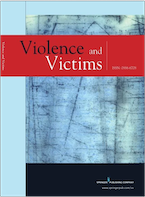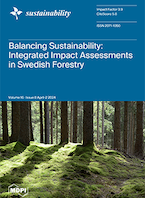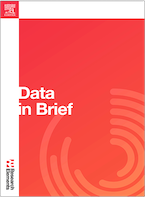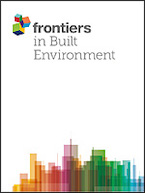-

Aggressiveness in Driving: A View From the Spanish Driver’s Perception
Francisco Alonso, Cristina Esteban, Andrea Serge, Mireia Faus
(2024). ArticleViolence and Victims. Num.39(3)
Aggressiveness is a concerning issue due to its contribution to road crashes. This study aims to provide an overview on how Spanish drivers perceive aggressive driving, analyzing how this perception is linked to sociodemographic features. Thus, a cross-sectional study was designed, where 1,079 Spanish drivers took part in a telephone survey on aggressiveness’ importance, influence on traffic accidents, and frequency of performance. For data processing, Exploratory Data Analysis and Unifactorial Variance Analysis were conducted. The results showed that the perception of aggressive driving has a high valuation and a high-perceived risk, with differences for sex, age, and driving experience....
Aggressiveness is a concerning issue due to its contribution to road crashes. This study aims to provide an overview on how Spanish drivers perceive aggressive driving, analyzing how this perception is linked to sociodemographic features. Thus, a cross-sectional study was designed, where 1,079 Spanish drivers took part in a telephone survey on aggressiveness’ importance, influence on traffic accidents, and frequency of performance. For data processing, Exploratory Data Analysis and Unifactorial Variance Analysis were conducted. The results showed that the perception of aggressive driving has a high valuation and a high-perceived risk, with differences for sex, age, and driving experience. The findings suggest that some groups perceive more aggressiveness than others, meaning it is necessary to develop measures to reduce biases through a gender perspective.
Leer más Ocultar DOI: 10.1891/VV-2021-0038ISSN: 1945-7073 -

Why frequent traffic accidents at highway tunnel exit? – An experimental analysis of the slack effect
Yongzheng Yang, Zhigang Du, Francisco Alonso, Mireia Faus, Shiming He
(2024). ArticleTunnelling and Underground Space Technology. Num.152:105927
This study analyzes the causes of frequent traffic accidents at the exit areas of highway tunnels. Vehicle experiments were conducted to collect data on the light environment, vehicle speed, and driver eye movement. The distribution patterns of the illumination, vehicle speed, and gaze location occupancy were analyzed, and highway tunnels of different lengths were compared. The tunnel exit area is divided into the transition, exit, and departure zones. It was observed that there was an obvious white-hole effect at the exit zone, with drastic changes in the light environment. The presence of abnormal acceleration behavior in the transition zone and decreased attention in the departure zone...
This study analyzes the causes of frequent traffic accidents at the exit areas of highway tunnels. Vehicle experiments were conducted to collect data on the light environment, vehicle speed, and driver eye movement. The distribution patterns of the illumination, vehicle speed, and gaze location occupancy were analyzed, and highway tunnels of different lengths were compared. The tunnel exit area is divided into the transition, exit, and departure zones. It was observed that there was an obvious white-hole effect at the exit zone, with drastic changes in the light environment. The presence of abnormal acceleration behavior in the transition zone and decreased attention in the departure zone demonstrate the existence of psychological and physiological slack in drivers. Additionally, the tunnel length positively correlates to the slack effect, which is stronger in extra-long tunnels than in the short and medium tunnels. Multiple control scenarios were established and driving simulation experiments were conducted to further analyze the impact of the slack effect on the traffic safety. The experimental results demonstrated that the slack effect of the extra-long tunnels exhibited an evident lag which was still present after leaving the tunnel exit. The average vehicle speed and trajectory offset were larger and more discrete in the post-tunnel zone than on an ordinary open road. The speed of the curve in the post-tunnel zone is 5.1 % higher than that of the curve in the ordinary road, and the maximum trajectory offset is 54.3 % higher. Thus, this study reveals the slack effect at tunnel exits and explains the abnormal phenomenon of relatively good traffic environments but high traffic accident rates in the transition and departure zones of tunnel exits. These results present considerable practical significance for the safe operation of highway tunnels, particularly extra-long tunnels.
Leer más Ocultar DOI: 10.1016/j.tust.2024.105927ISSN: 1878-4364 -

Analysis of Commuting Habits and Perceived Risks: An Empirical Case Study in a Large Spanish Company
Cosme Fernández, Francisco Alonso, Francisco Tortosa, Mireia Faus
(2024). ArticleSustainability. Num.16(12):5245
Commuting road accidents have a direct impact on workers as well as companies. Therefore, analyzing the characteristics of commuting to and from work and workers’ perceptions of their potential risk is necessary. This study analyzes these factors in a sample of employees in a large Spanish company. A questionnaire was distributed to a total of 665 workers, assessing variables such as means of transport used and preferred in this type of commuting, perceived risks, assessment of preventive measures, involvement in a road accident during commuting, and road safety training received by the company, among others. There is a difference between preferred and used modes of transport, with factors...
Commuting road accidents have a direct impact on workers as well as companies. Therefore, analyzing the characteristics of commuting to and from work and workers’ perceptions of their potential risk is necessary. This study analyzes these factors in a sample of employees in a large Spanish company. A questionnaire was distributed to a total of 665 workers, assessing variables such as means of transport used and preferred in this type of commuting, perceived risks, assessment of preventive measures, involvement in a road accident during commuting, and road safety training received by the company, among others. There is a difference between preferred and used modes of transport, with factors limiting the use of soft modes. People who have experienced an accident on the way to work have a higher risk perception of this type of journey. The time and distance of the journey also have a significant influence on the perceived risk. The most highly rated preventive actions are mainly related to the accessibility and comfort of the workers’ daily commute, which helps minimize the time spent on journeys. This analysis provides relevant information on the social acceptability of different measures for the development and implementation of future actions of the prevention services that contribute to reducing this type of accident and designing strategies to promote more sustainable commuting mobility.
Leer más Ocultar DOI: 10.3390/su16125245ISSN: 2071-1050 -

Public Transportation Means as seen by Citizens: approaching the case of the Dominican Republic
Francisco Alonso, Cristina Esteban, Mireia Faus, Sergio Useche
(2024). ArticleHeliyon. Num.10:e32363
Especially in low and middle-income countries, key constraints such as dense traffic flows, jams, and pollution constitute frequent issues that potentially explain many negative consequences in terms of (e.g.) efficiency, sustainability, and mobility safety. In this regard, recent evidence supports the idea that fostering public transportation is crucial to offering solutions for this difficult panorama. However, transport mode-related choices and shifts have been proven to depend highly on key perceptions and needs of potential users. The aim of this study was to analyze a set of key users’ perceptions, usage, and perceived quality of public transportation in the Dominican Republic, as...
Especially in low and middle-income countries, key constraints such as dense traffic flows, jams, and pollution constitute frequent issues that potentially explain many negative consequences in terms of (e.g.) efficiency, sustainability, and mobility safety. In this regard, recent evidence supports the idea that fostering public transportation is crucial to offering solutions for this difficult panorama. However, transport mode-related choices and shifts have been proven to depend highly on key perceptions and needs of potential users. The aim of this study was to analyze a set of key users’ perceptions, usage, and perceived quality of public transportation in the Dominican Republic, as well as to explore the most relevant features for Dominicans from the “desired quality” paradigm. For this research at a national level, data retrieved from a nationwide sample of 1254 inhabitants of the Dominican Republic was used, proportional to the ONE census in terms of sex, age, habitat, and region. Overall, the results show that the general quality of transportation is 6.70 points out of 10. The use of public transportation in the Dominican Republic has a medium-low rating and is very focused on urban buses (41 %) and public cars (27.1 %). Nonetheless, the metro remains the most highly rated means of transport (M = 8.75). Concerning the quality variables analyzed, the highest scores are for accessibility (M = 7.08) and frequency of service (M = 6.99). Further, Dominicans focus on improving comfort, vehicle conditions, and safety. This study constitutes a first approximation to the desired quality of public transportation for Dominican Citizens, which may help policymakers scope user-based needs in public transportation systems and encourage a more frequent (and friendlier) public transport use in the country.
Leer más Ocultar DOI: 10.1016/j.heliyon.2024.e32363ISSN: 2405-8440 -

How to resolve the contradiction between driving safety and lighting energy conservation in a highway tunnel? − An experiment on linear guiding system
Yongzheng Yang, Francisco Alonso, Zhigang Du, Sergio Useche
(2024). ArticleTransportation Research Part F: Traffic Psychology and Behaviour. Num.103:319-339
High rates of traffic accidents and lighting energy consumption are significant problems in highway tunnels. To address these problems, this study proposes a linear guiding system that uses line-shaped visual guiding facilities to improve the local luminance and contrast, and outlines the tunnel contour and road alignment. In addition, the principle, function, setting method, and composition of the linear guiding system are discussed. Using the existing highway tunnels as prototypes, we built simulation scenarios with different luminance and conducted driving simulation experiments and questionnaire surveys. We analysed the human factor demands of tunnel driving, studied the change rule of...
High rates of traffic accidents and lighting energy consumption are significant problems in highway tunnels. To address these problems, this study proposes a linear guiding system that uses line-shaped visual guiding facilities to improve the local luminance and contrast, and outlines the tunnel contour and road alignment. In addition, the principle, function, setting method, and composition of the linear guiding system are discussed. Using the existing highway tunnels as prototypes, we built simulation scenarios with different luminance and conducted driving simulation experiments and questionnaire surveys. We analysed the human factor demands of tunnel driving, studied the change rule of various human factor indicators under different luminance levels, and comprehensively evaluated the impact of linear guiding system on driving safety from multiple perspectives of the driver’s vision, psychology, and behaviour. We introduce the concept of equivalent luminance, quantify the impact of linear guiding system on the driver, and explore the role of linear guiding system in energy conservation. The results showed that the linear guiding system has a positive effect on driver vision, psychology, and behaviour, particularly in low-luminance environments. A linear guiding system can optimise a driver’s visual reference frame, enhance driver visual perception in a tunnel environment, and alleviate driver tension. It helps drivers to accurately perceive their own spatial position and speed, providing a good sense of position, speed, and comfort. A 2.3 cd/m2 luminance highway tunnel with a linear guiding system is equivalent to a 4 cd/m2 luminance traditional tunnel. For highway tunnels with luminance values of 4, 5, 6, and 7 cd/m2, the equivalent luminance values of the linear guiding system are 1.7, 1.8, 1.8, and 2.1 cd/m2 respectively, which can reduce the energy consumption by 30–42 %
Leer más Ocultar DOI: 10.1016/j.trf.2024.04.018ISSN: 1369-8478 -

Sustainable behavior begins with sustainable attitudes: Data to assess the relationships between demographics, concerns about transport-related pollution, and willingness for action
Francisco Alonso, Cristina Esteban, Mireia Faus, Sergio Useche
(2024). ArticleData in Brief. Num.54:110446
This Data in Brief (DiB) article addresses the relationships among individuals’ transport habits, perceptions, and attitudes regarding transport-related pollution, as well as their willingness to act for environmental change. There are presented descriptive statistics, basic comparisons, and bivariate correlations among the core variables of the study. Additionally, the attached dataset appends information from a nationwide sample of 1,250 citizens in the Dominican Republic, with sex, age and habitat distribution proportional to the national census. The research database contains the full set of questions and responses to the research questionnaire, which is also attached to the...
This Data in Brief (DiB) article addresses the relationships among individuals’ transport habits, perceptions, and attitudes regarding transport-related pollution, as well as their willingness to act for environmental change. There are presented descriptive statistics, basic comparisons, and bivariate correlations among the core variables of the study. Additionally, the attached dataset appends information from a nationwide sample of 1,250 citizens in the Dominican Republic, with sex, age and habitat distribution proportional to the national census. The research database contains the full set of questions and responses to the research questionnaire, which is also attached to the supplementary files along with its codebook, making it possible to conduct further data explorations for research-related, divulgation, and educational purposes. For more information about the root study, it is advisable to read the paper “Who wants to change their transport habits to help reduce air pollution? A nationwide study in the Caribbean”, published in Journal of Transport & Health [1].
Leer más Ocultar DOI: 10.1016/j.dib.2024.110446ISSN: 2352-3409 -

The Role of News Media in Reducing Traffic Accidents
Antonio J. Lucas, Francisco Alonso, Mireia Faus, Arash Javadinejad
(2024). ArticleSocieties. Num.14(5):56
Traffic accidents represent a major problem worldwide. Public and private entities launch communication campaigns in order to educate the population about this problem. The aim of this study is to analyze the evolution of the presence of road safety in the Spanish media and its influence on the reduction of road accidents. A content analysis of six major Spanish newspapers between 2000 and 2008 (an important period in the reduction of the accident rate in Spain) was carried out in which the presence of news related to traffic accidents and the intensity of them were quantified using a set of criteria designed for this study. Furthermore, the correlation between the accident rates and the...
Traffic accidents represent a major problem worldwide. Public and private entities launch communication campaigns in order to educate the population about this problem. The aim of this study is to analyze the evolution of the presence of road safety in the Spanish media and its influence on the reduction of road accidents. A content analysis of six major Spanish newspapers between 2000 and 2008 (an important period in the reduction of the accident rate in Spain) was carried out in which the presence of news related to traffic accidents and the intensity of them were quantified using a set of criteria designed for this study. Furthermore, the correlation between the accident rates and the presence and intensity of news in the same time frame was measured. There has been an evident increase in the news related to traffic accidents during the analyzed period, both in terms of the presence of such news in general and in terms of intensity. The correlation analysis also shows a strong relationship between the increase in news presence and intensity and a sharp fall in accident rates in Spain. Although correlation analysis is not enough to establish a causal relationship between the variables studied here, the findings suggest that informative campaigns had a positive effect on encouraging pro-social behavior, were successful in disseminating related information, and, therefore, contributed significantly to lowering accident rates, although that was not the only reason.
Leer más Ocultar DOI: 10.3390/soc14050056ISSN: 2075-4698 -

Promoting (Safe) Young-User Cycling in Russian Cities: Relationships among Riders’ Features, Cycling Behaviors and Safety-Related Incidents
Sergio Useche, Francisco Alonso, Aleksey Boyko, Polina Buyvol, Irina Makarova, Gleb Parsi, Mireia Faus
(2024). ArticleSustainability. Num.16(8):3193
Background: Promoting cycling, walking and other ‘active’ transportation means continues to be a shared guideline in urban planning, closely aligned with the Sustainable Development Goals of the United Nations. Nonetheless, young cyclists’ safety figures and their potential contributors, including behavioral issues, remain an ongoing concern for researchers, practitioners, and policymakers. Aim: This study aimed to analyze both risky and protective riding patterns of young Russian cyclists in relation to cycling safety factors using the Cycling Behavior Questionnaire (CBQ). Methods: This study used the data provided by 374 young Russian cyclists, aged M = 21.6 (SD = 4.8) years, who...
Background: Promoting cycling, walking and other ‘active’ transportation means continues to be a shared guideline in urban planning, closely aligned with the Sustainable Development Goals of the United Nations. Nonetheless, young cyclists’ safety figures and their potential contributors, including behavioral issues, remain an ongoing concern for researchers, practitioners, and policymakers. Aim: This study aimed to analyze both risky and protective riding patterns of young Russian cyclists in relation to cycling safety factors using the Cycling Behavior Questionnaire (CBQ). Methods: This study used the data provided by 374 young Russian cyclists, aged M = 21.6 (SD = 4.8) years, who responded to an electronic survey on cycling behavior and safety outcomes. Results: Beyond demographic characteristics, the key road rule knowledge and risk perception of young cyclists were significantly associated with their self-reported cycling behaviors. Although both traffic violations and riding errors were negatively correlated with safety incidents, predictive analyses show that errors (though not violations) play a predictive role in young cyclists’ safety-related incidents. Conversely, positive cycling behaviors have been shown to be significant reducers of riding crash likelihood. Conclusion: The results of this study support the idea that addressing key issues such as risk perception, road rule knowledge and protective riding habits, while also targeting risky behaviors on the road, could enhance cycling safety outcomes. Additionally, these findings offer valuable insights into understanding the factors contributing to riding risks and crashes among young cyclists, particularly in the context of the increasing need to promote safer and more sustainable urban mobility in a country with a still young cycling culture.
Leer más Ocultar DOI: 10.3390/su16083193ISSN: 2071-1050 -

Using demographic, psychosocial, behavioural and safety-related factors to assess cyclists' behaviour: A comparative approach across 19 countries
Sergio Useche, Francisco Alonso, Aleksey Boyko, Polina Buyvol, Isaac Castañeda, Boris Cendales, Arturo Cervantes, Tomas Echiburu, Mireia Faus, Zuleide Feitosa, Cesareo Fernandez, Javier Gene-Morales, Bas de Geus, Jozef Gnap, Mohd K. Ibrahim, Kira H. Janstrup, Ignacio Lijarcio, Irina Makarova, Miroslava Mikusova, Mette Møller, Sylvain G. Ngueuteu-Fouaka, Steve O'Hern, Mauricio Orozco-Fontalvo, German Rojas, Ksenia Shubenkova, Felix Siebert, Jose Soto, Amanda Stephens, Yonggang Wang, Linus Zeuwts, Zahir H. Zulkipli, Rich McIlroy
(2024). ArticleData in Brief. Num.54:110278
This Data in Brief (DiB) article presents the differences in cycling behaviors related to violations, errors, and positive behaviors by region. The study data were collected by means of a structured questionnaire applied to a full sample of 7,001 participants from 19 countries, distributed over 5 continents. This paper proposes descriptive statistics, as well as common statistical tests. The aim is to enable authors to make their own analyses, not to provide precise interpretations. For further information about the macro project supporting the collection of these data, it is advised to refer to the paper titled “Cross-culturally approaching the cycling behavior questionnaire (CBQ):...
This Data in Brief (DiB) article presents the differences in cycling behaviors related to violations, errors, and positive behaviors by region. The study data were collected by means of a structured questionnaire applied to a full sample of 7,001 participants from 19 countries, distributed over 5 continents. This paper proposes descriptive statistics, as well as common statistical tests. The aim is to enable authors to make their own analyses, not to provide precise interpretations. For further information about the macro project supporting the collection of these data, it is advised to refer to the paper titled “Cross-culturally approaching the cycling behavior questionnaire (CBQ): Evidence from 19 countries”, published in Transportation Research Part F: Traffic Psychology and Behavior.
Leer más Ocultar DOI: 10.1016/j.dib.2024.110278ISSN: 2352-3409 -

Editorial: Data science methods for solving real-world problems in transportation, security and beyond
Mireia Faus, Francisco Alonso, Begoña Guirao, Mahdi Rezapour
(2024). ArticleFrontiers in Built Environment. Num.10:1388714
The contemporary world is rife with opportunities and challenges in the fields of security and transportation. Urbanization, globalization, digitalization, and population growth have all contributed to creating dynamic, complicated problems that need creative, practical solutions. Large and complex data sets generated in these domains can be analyzed, understood, and used with the help of solid tools provided by data science, which includes a wide range of techniques, including computer vision, machine learning, deep learning, statistics, natural language processing, etc. In fact, data science can potentially improve society’s safety and wellbeing as well as the effectiveness and...
The contemporary world is rife with opportunities and challenges in the fields of security and transportation. Urbanization, globalization, digitalization, and population growth have all contributed to creating dynamic, complicated problems that need creative, practical solutions. Large and complex data sets generated in these domains can be analyzed, understood, and used with the help of solid tools provided by data science, which includes a wide range of techniques, including computer vision, machine learning, deep learning, statistics, natural language processing, etc. In fact, data science can potentially improve society’s safety and wellbeing as well as the effectiveness and performance of security and transportation systems. In this sense, some reflections linked to the Research Topic are raised, such as how data science can contribute to improving transport management and what is the impact of road infrastructure, urban design and transport systems in developing more sustainable and safer mobility for citizens? Or can data science identify which variables influence users’ driving decisions and behaviours? Consequently, this Research Topic aims to respond to these issues and demonstrate the state-of-the-art research and advances in data science that can address real-world problems in transportation, security and beyond.
Leer más Ocultar DOI: 10.3389/fbuil.2024.1388714ISSN: 2297-3362









